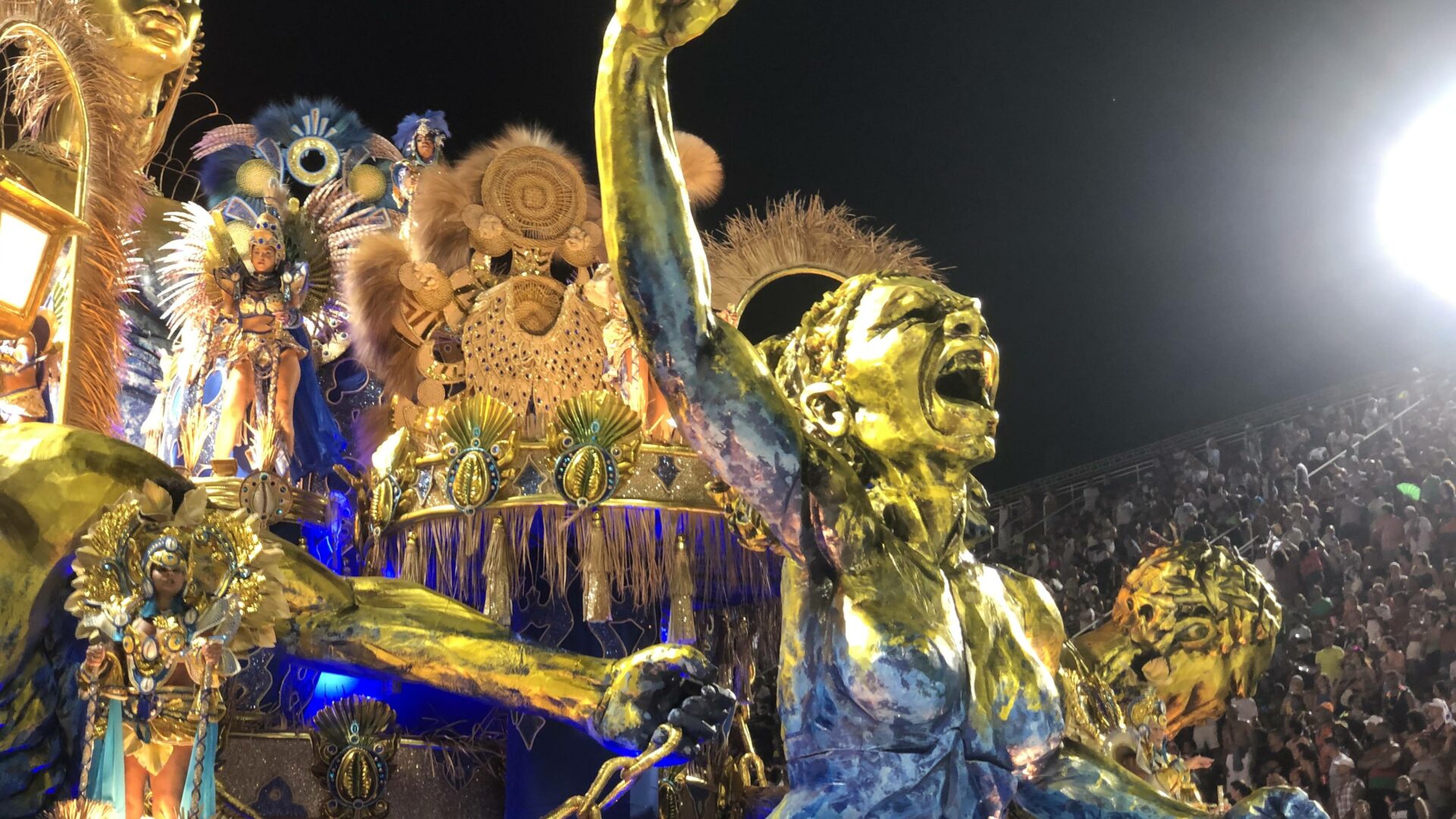It’s often described as “the greatest show on earth” — and with good reason.
With befeathered dancers atop floats the size of small houses, the fast-moving feet of sparkling samba queens, and thousands of performers in colorful costumes singing at the top of their lungs, the Carnival procession of Rio de Janeiro’s top samba schools is truly a feast for the eyes and ears.
It is also a minutely organized endeavor, the result of months of preparation and rehearsal. The carefully timed processions down the purpose-built Sambadrome are, after all, as much a competition as they are an extravagant show.
As well as the glory of victory for the winning school, a financial prize is divided up between the six best-performing schools (out of a total of 12 in the top division), which return to the Sambadrome for the Winners’ Parade on the Saturday after Carnival.

The whole process starts almost a year prior with the choice of the samba-enredo, the song to which each school sets their procession. The costumes and themes of the numerous wings and floats are dictated by the story told in the song. The samba-enredo is one of the nine categories on which a school’s overall performance is scored.
Traditionally, the samba songs schools write each year tend to tell stories from Brazilian folklore, celebrate the African influences in the country’s culture, or bring some kind of political satire or critique to the table.
Some of the most memorable political statements seen in the Sambadrome in recent years include Paraíso do Tuiuti’s 2018 procession, which criticized a recent labor reform and depicted then-president Michel Temer as a vampire, and the 2019 performance by Estação Primeira de Mangueira, which won that year’s competition with a tribute to Brazil’s black and indigenous heroes, including Rio city councilor Marielle Franco, who was murdered one year...


 Search
Search






































